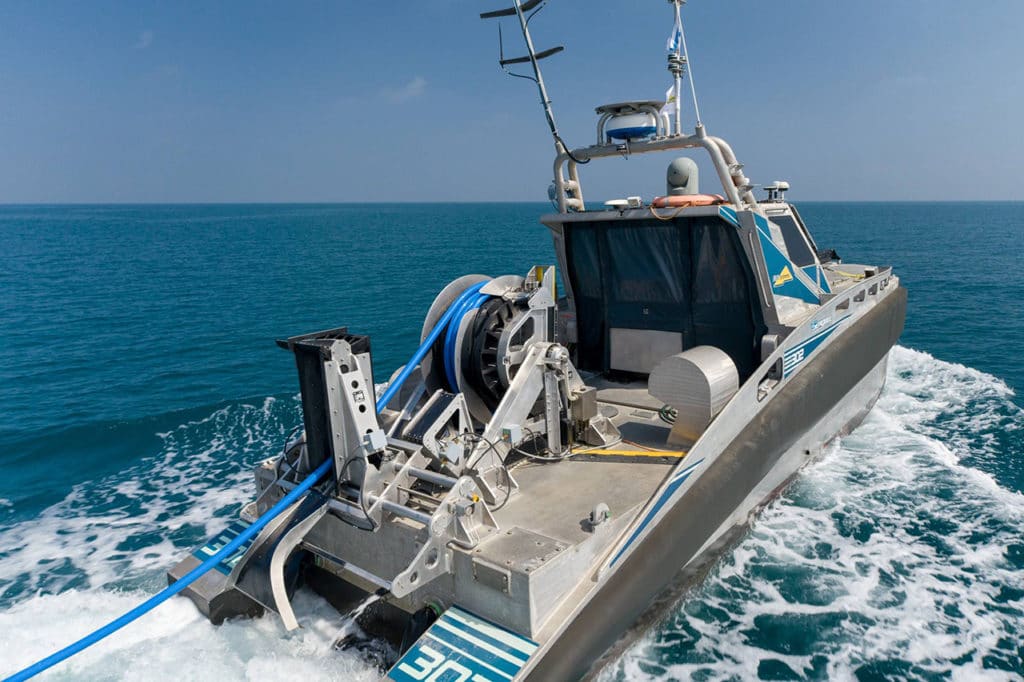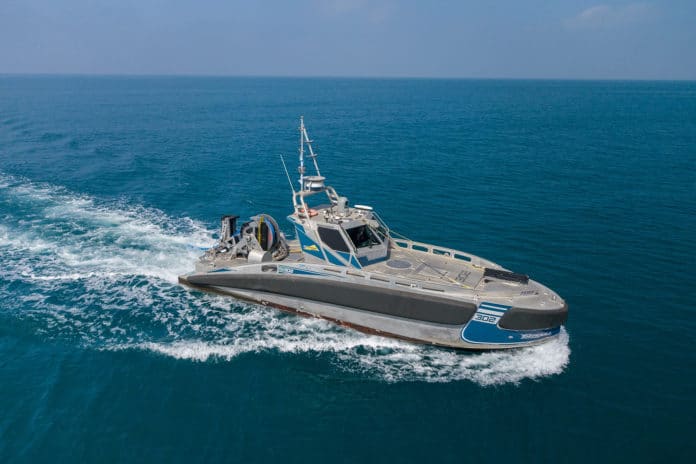Elbit Systems UK has completed the series of Anti-Submarine Warfare (ASW) trials with the UK Ministry of Defense (MoD). The test was conducted at the Defense Technology and Science Laboratory to explore the use of autonomous systems in future submarine battles.
Elbit Systems UK has used its Seagull USV (Unmanned Surface Vehicle) for these trials, with the USA’s L3 Harris providing the sonar. The Seagull, Elbit Systems’ multi-mission, multi-sensor USV demonstrated its autonomous ASW utility throughout the trial period, using its ‘ASW Toolbox’ solution to explore how autonomous systems could support future ASW operations.
The company was one of the shortlisted to participate in this second phase of the project – a series of live trials that took place off the UK coast.

“Elbit Systems has world-leading technology to offer to the maritime and littoral environment. The Seagull USV has once again demonstrated its superior capabilities underlining Elbit Systems UK’s competitive position to providing innovative and cost-effective solutions to the UK Armed Forces. We are proud of our ongoing work with the Royal Navy as we work together to maintain its operational advantage,” said Martin Fausset, CEO of Elbit Systems UK.
The Seagull is an unmanned surface vessel (USV), which was unveiled in February 2016 during the Singapore Air Show. It offers a generation of an unmanned naval system capable of carrying out a wide range of missions, including Mine Counter Measures (MCM), Electronic Warfare, Maritime Security, Hydrography, and other missions.
The Seagull is deployable with the capability to operate from port or mother-ship, with two vessels able to be controlled from the same MCS (Mission Control System) and both manned and unmanned modes of operation, the latter featuring a high level of autonomy. It can carry modular mission payload systems including navigation and security, electro-optical (EO)/infrared (IR)sensors, side-scan sonar, or synthetic aperture sonar (SAS), front-view sonar.
The front deck of the Seagull USV is equipped with a remote-controlled weapons station with a 12.7 mm heavy machine gun. Seagull offers endurance of 4 days and mission sea-keeping of up to Sea-State 5.
